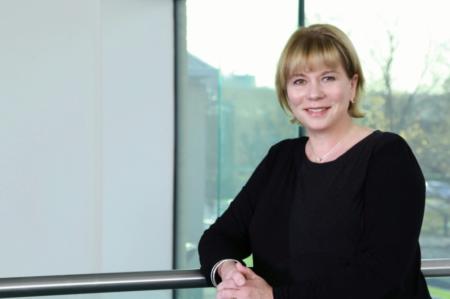Guest blog: 'Doing the maths: why business needs to get on board' - By Dr Gillian Burgess
Dr. Gillian Burgess, Site Head of UK Research and Vice President at Vertex Pharmaceuticals and Board Member of the Science Industry Partnership (SIP) of employers, sets out the business case for promoting greater uptake of maths to support individuals in undertaking the science jobs of today and tomorrow.

For the last two decades, there has been increasing concern from successive governments and businesses alike about how we best go about boosting UK productivity and economic growth in an era of unprecedented technological change.
One thing most observers agree on, is that advancing the UK’s Science, Technology, Engineering and Maths (STEM) base and increasing workforce STEM skills will strengthen our industrial base. The SIP’s Skills Strategy set out a number of shortages the sector faces in this area, in areas such as big data and informatics, synthetic biology, biotechnology, formulation technology and materials science.
And it is the “M” in STEM which increasingly underpins the individual’s ability to undertake occupations in these areas. Our sector needs data handling, statistical, analysis, problem solving and computational skills. These transferable skills are of course critical to many well paid jobs in the sector, and our message to young people is that studying maths provides all of this and more. Indeed more Universities are also demanding A-Level maths as a pre-requisite to being accepted on a scientific Degree course such as Chemistry – a sign that Higher Education is also taking this issue seriously.
The SIP has long called for maths to be at the heart of our education system and is committed to signalling its value to our educators and young people. The SIP was delighted to see last year’s Recommendations from Sir Adrian Smith and the Government’s £16 million investment to increase the quality of teaching in post-16 maths and the drive to see more students studying the maths after GCSE.
Then came the Industrial Strategy commitment to invest an additional £406m in maths, digital and technical education to help to address the shortage of STEM skills; this includes a level 3 maths support programme, expanding maths teaching capability (including financial incentives), improving maths outcomes and a network of maths Centres of Excellence. This was all reiterated in the Life Sciences Sector Deal in which the SIP is a key delivery partner.
Some other key considerations from the SIP include a longer term ambition that all students studying science subjects beyond 16 should also study maths at least to level 3 to enable them to gain confidence in statistics and other aspects of quantitative research. We have also called for a change in education policy to make maths a requirement for those students taking scientific A levels e.g. Core Maths. This measure would support growth in maths capability and excellence in both the current and next generation of scientists.
The SIP has recently submitted an Expression of Interest to the Institute for Apprenticeships for a Higher Level Bioinformatician Apprenticeship Standard (Level 7), just one current development that illustrates this industry need. Key skills set out in the role description for undertaking this new vocational route to becoming a Bioinformatician include, computational, statistics and mathematics skills.
The SIP also supports the Government’s development of a new, robust new Technical Education System which will consist of provider-based T levels and work-based apprenticeships, to sit alongside the academic track, delivering its vision set out in the ambitious Post-16 Skills Plan. All new technical qualifications, including those in the Health and Science route, will include maths
Working in medical research, I know first-hand how critical maths is to the hunt for new drugs to treat serious diseases.
Whether it’s defining statistically relevant ‘hits’ during the screening of millions of molecules per year, the application of algorithms to define how tightly molecules interact with relevant drug targets or how potent our drug candidates are at correcting human cells – maths is fundamental to our science endeavours. And we all have a part to play in ensuring we have the right skills base in place, so the UK continues to be recognised as world leading in STEM.
For further information on skills support offered through SIP membership contact [email protected]
.png)
.png)